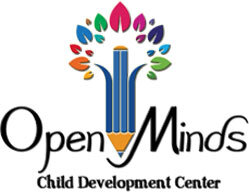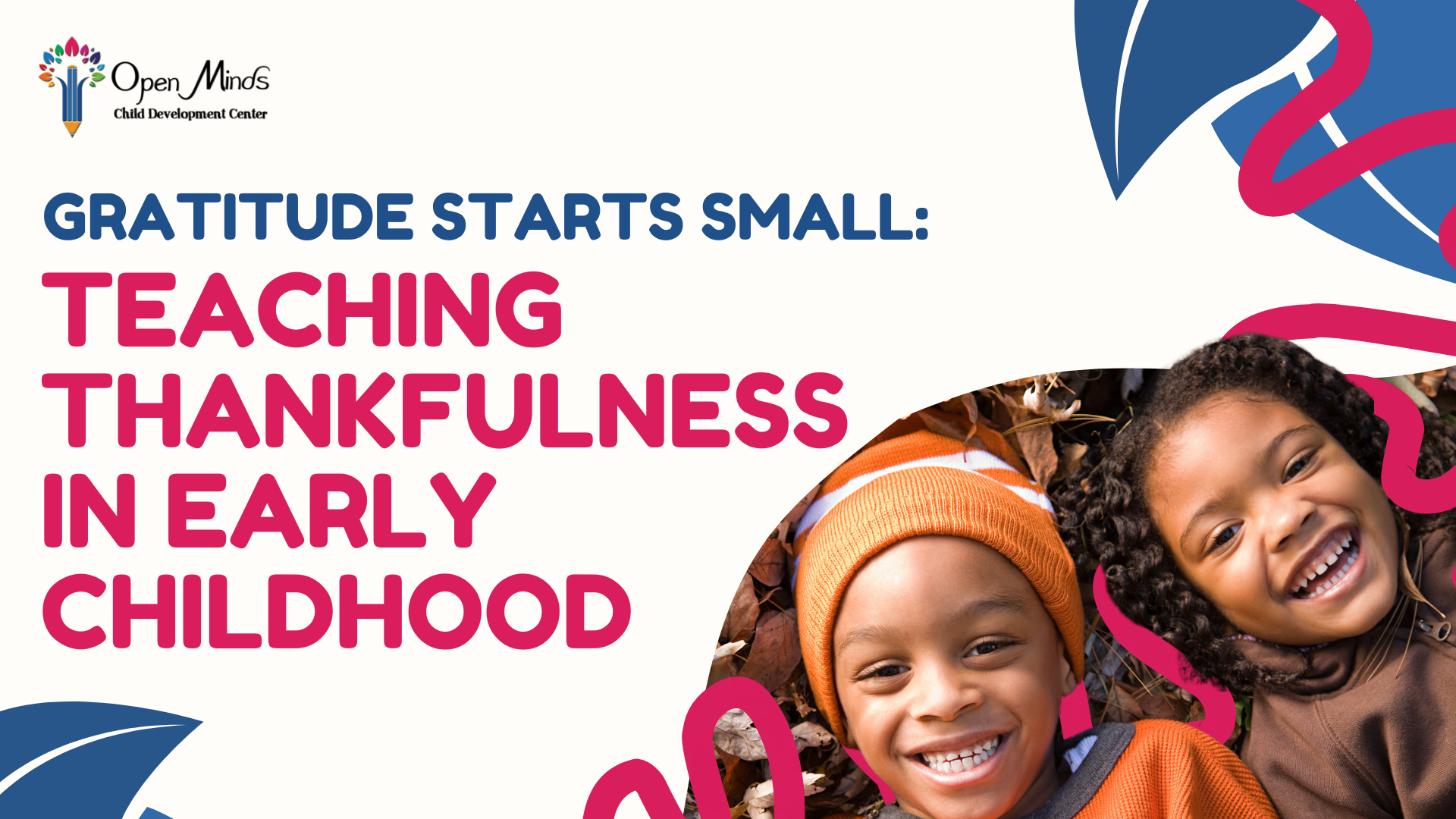Gratitude Starts Small: Teaching Thankfulness in Early Childhood
At Open Minds, we believe that even the smallest hearts are capable of the biggest thanks. As we enter the season of giving, this is the perfect time to nurture gratitude in our young learners through stories, daily habits, and simple moments that spark appreciation.
Gratitude isn't just a seasonal sentiment. It is a powerful social-emotional skill that helps children build empathy, increase happiness, and strengthen relationships at home and in the classroom. And the best part is that it starts small.
Why Gratitude Matters in Early Childhood
Gratitude plays an important role in early development. Research shows that children who practice gratitude:
Develop stronger connections with peers and family
Experience more positive emotions
Are more generous and compassionate
Build resilience in difficult situations
When children learn to recognize what they’re thankful for, even something as small as a shared toy or a kind word, they begin developing emotional skills that last a lifetime.
How Young Children Learn Thankfulness
Gratitude isn’t always natural for little ones and that’s okay! It’s a learned behavior that develops over time with practice and modeling.
Children under 5 may not fully grasp the abstract concept of appreciation, but they can begin to:
Recognize when someone does something kind
Say “thank you” with meaning
Share what makes them feel happy or loved
Express joy when giving or helping others
It all begins with naming the good things they experience and understanding where those good things come from.
At Home: Simple Ways to Practice Gratitude
Looking to continue the conversation at home? Here are a few easy ways to nurture thankfulness with your child:
1. Gratitude Circle at Dinner or Bedtime
Take turns sharing one thing you're thankful for that day. It could be big (“my family”) or small (“the applesauce at lunch”).
2. Thank You Card Craft
Let your child draw or decorate a simple card for someone who helped them—like a teacher, friend, or neighbor.
3. Gratitude Jar
Keep a jar where family members can drop in notes about what made them smile that week. Read them together on Sundays!
4. Model It Out Loud
Say things like, “I’m so thankful you helped me carry the groceries!” Kids learn by watching and hearing.
5. Books About Gratitude
Read stories that model kindness, generosity, and appreciation. Books like Bear Says Thanks by Karma Wilson or Last Stop on Market Street by Matt de la Peña spark great conversations and encourage empathy.
Gratitude Grows With Practice
Just like learning to count or tie shoes, gratitude takes practice. At Open Minds, we create opportunities every day for children to build this skill through conversation, storytelling, group activities, and meaningful connections with others.
Thank You, Open Minds Families!
We’re incredibly thankful for our families, teachers, and community who make Open Minds such a warm and joyful place to grow. Thank you for walking this journey with us and for helping nurture thoughtful, kind, and grateful little minds!
Let’s continue to model thankfulness and celebrate kindness today and every day.

